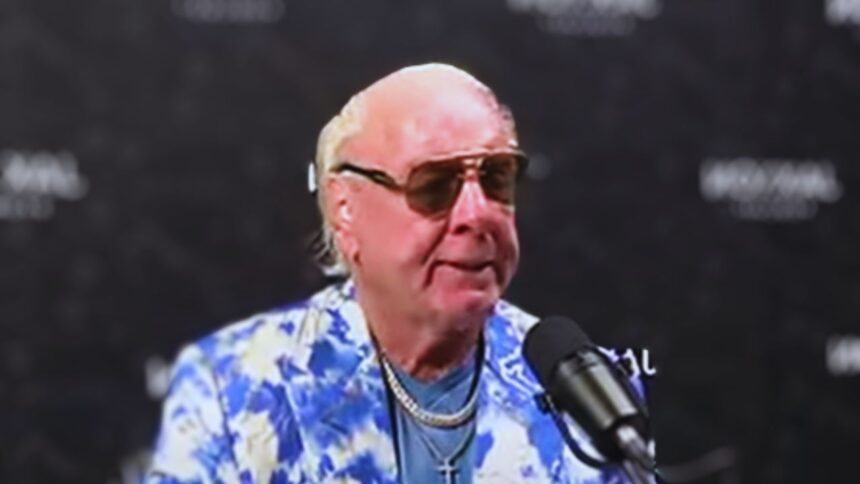Ric Flair, a pivotal figure in wrestling history, has recently taken to social media to issue a public apology to Vince Russo, Eric Bischoff, and Jim Herd, individuals he previously criticized as contributing to the downfall of WCW. This apology comes after Flair’s initial comments labeling them as a “three-headed dragon” responsible for the company’s demise.
In a heartfelt post on X, Flair expressed regret over his earlier statements, acknowledging that he unfairly judged Russo, Bischoff, and Herd without understanding the full context of their roles and decisions within WCW. He credited someone significant in his life for pointing out the limitations of Twitter as a medium for meaningful communication.
“A Very Important Person In My Life Reminded Me Yesterday That Twitter Is The Weakest Form Of Communication. I Want To Take This Opportunity To Apologize To Jim Herd, @EBischoff, And @THEVinceRusso Because I Really Don’t Know,” Flair stated in his tweet.
Flair also expressed a desire for improved relationships with these figures from WCW’s past, suggesting that he hopes they can move forward positively despite their history. His gesture included plans to appear on Eric Bischoff’s podcast in the future, indicating a willingness to discuss and reconcile their differences publicly.
In response, Vince Russo accepted Flair’s apology graciously, emphasizing that life is too short to hold onto grudges. He also noted his openness to reconciling with Eric Bischoff, with whom he has had prior conflicts. Russo’s response highlighted a willingness to move forward and mend relationships within the wrestling community.
Flair’s contentious history with Jim Herd traces back to his initial WCW tenure, marked by disagreements that eventually led Flair to depart for WWE. One notable conflict arose over Herd’s proposed rebranding of Flair as “Spartacus,” a move vehemently opposed by Flair and others in the wrestling industry.
Ric Flair’s apology represents a pivotal moment of introspection and reconciliation within the wrestling community, signaling a sincere effort to heal rifts and promote understanding among former adversaries. His willingness to acknowledge past missteps and extend an olive branch underscores a commitment to personal growth and reconciliation.
Flair’s apology not only acknowledges the impact of his actions but also sets a positive example of accountability and humility. By publicly addressing issues from his past, he demonstrates a genuine intent to make amends and foster a more inclusive and supportive environment within wrestling circles.
This gesture of reconciliation is significant not only for Flair personally but also for the wrestling industry as a whole, highlighting the importance of addressing past grievances and forging stronger relationships moving forward. It reflects a broader cultural shift towards empathy and understanding, encouraging others to reflect on their own actions and strive for reconciliation where possible.
In embracing this moment of reflection and apology, Ric Flair not only reaffirms his legacy but also sets a precedent for positive change and mutual respect within the wrestling community. His actions serve as a reminder of the power of forgiveness and reconciliation in fostering a more harmonious and supportive environment for everyone involved in the sport.




